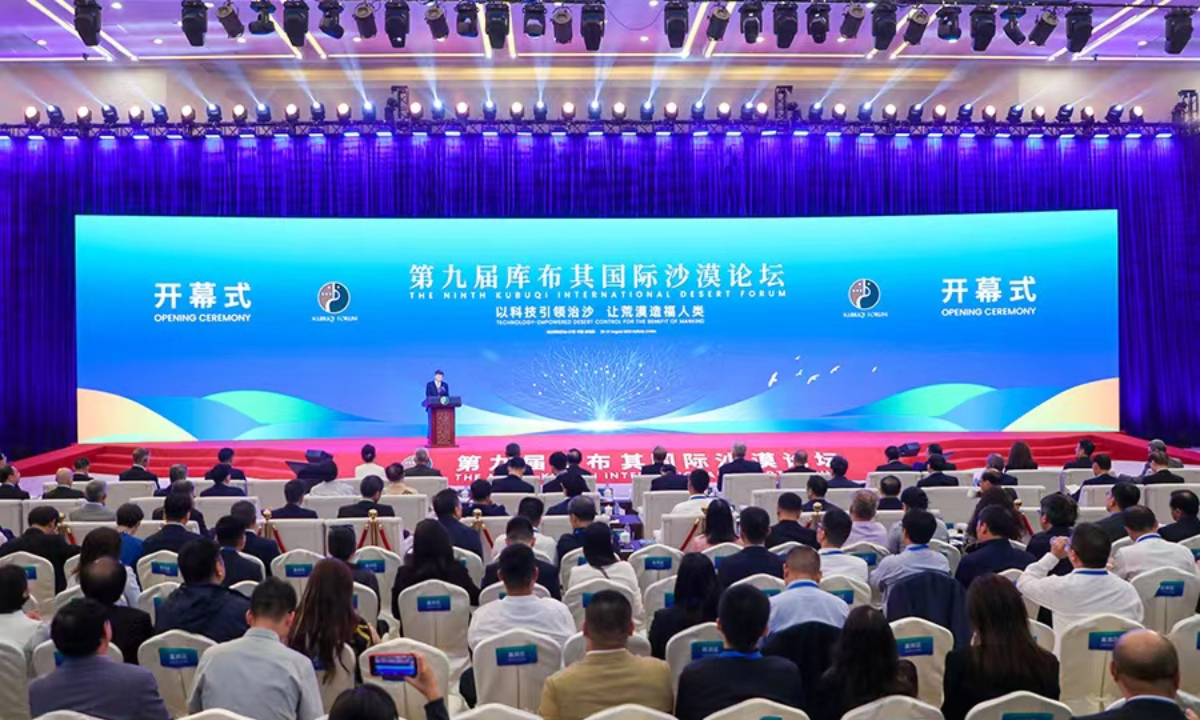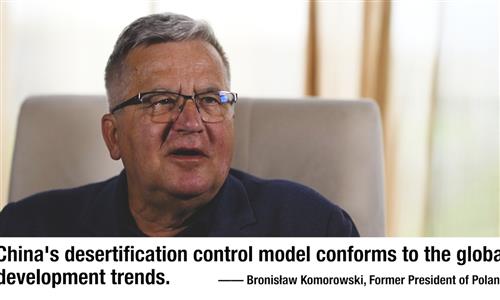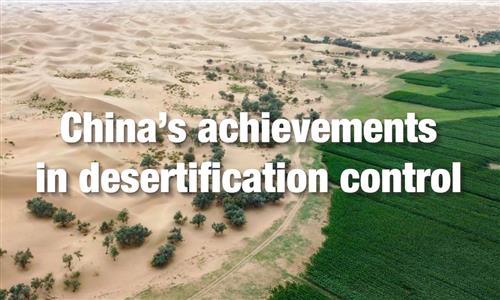Kubuqi Intl Desert Forum begins in N China's Inner Mongolia emphasizing scientific innovation and international cooperation

The opening ceremony of the ninth Kubuqi International Desert Forum. Photo: Lin Xiaoyi/GT
The ninth Kubuqi International Desert Forum (KIDF), which aims to promote ecological civilization construction and scientific innovation in sand control and land restoration, providing the international community with China's experience in the prevention of desertification, kicked off on Saturday in Ordos, North China's Inner Mongolia Autonomous Region.
An important effort to combat desertification - the China-Arab International Research Center for Drought, Desertification and Land Degradation - was established at the forum's opening ceremony. Representatives of the meeting signed the memorandum of understanding on building the center and launched the first batch of collaboration projects, including greening the upgrading projects for Saudi new cites and exporting knowhows to other Gulf Cooperation Council countries, and Saudi 10 billion trees and shrubs nursery, plantation, and eco-solar desert control engineering projects.
The two-day forum, themed "Technology-empowered Desert Control for the Benefit of Mankind," was attended by more than 300 participants, including foreign political figures, representatives from UN agencies, officials from relevant ministries and commissions, as well as experts, scholars, and entrepreneurs. The attendees reached a consensus that in the face of the current uncertain international environment and the increasingly severe challenges of land desertification, the KIDF is an important platform for countries around the world to exchange experience in combating desertification, and China's efforts to scientifically control deserts have made new contributions to the global response to desertification challenges and ecological crises.
"This time I came to Ordos, I was most impressed by the Kubuqi Desert green area which is getting bigger and bigger. And through the forum, I also saw that the Chinese government is paying more and more attention to the desertification control, this is consistent with the efforts of the international community to manage environmental protection," Former Polish President Bronisław Komorowski told the Global Times on Saturday.
Kubuqi Desert is the seventh largest desert in China, forming a huge yellow sand belt lying toward the north of the Ordos Plateau, only 800 kilometers away from Beijing. The Kubuqi Desert was once known as "the sea of death," however, currently, more than 6,000 square kilometers of the desert have been covered with green vegetation. Animals and plants have grown from more than 100 species to more than 530 species. At the same time, the quality of local people's life has been greatly improved.
The KIDF, jointly held by China's Ministry of Science and Technology, the National Forestry and Grassland Administration, and the Inner Mongolia Autonomous Regional People's Government, is the only large-scale international forum dedicated to promoting global desertification control and green economic development. This year's forum invited the United Nations Environment Programme and the Secretariat of the United Nations Convention to Combat Desertification as co-organizers.
"I had the privilege to visit the extraordinary landscapes of the Ordos region. I witnessed firsthand the remarkable, socioeconomic and ecological restoration, an inspiring example for the regions around the world, struggling against land, degrading desiccation and decimation," Amina Mohamed, Deputy Secretary-General of the United Nations said at the forum.
Over the past ten years, China has taken a series of measures in the areas of policy, marketization and industrialization, and encouraged governments, enterprises and social forces to work together to implement a series of major sand control projects, completing the task of sand control and prevention of 282 million mu (18.8 million hectares), reducing the area of sandy land by more than 64.9 million mu, contributing to 25 percent of the world's green increment.
Scholars and experts attending the forum noted that 2023 marks the 10th anniversary of China's proposal of building a community with a shared future for mankind and the Belt and Road Initiative (BRI). China actively promotes international dialogue, alignment between international cooperation on the BRI and the implementation of the 2030 Agenda.
The Forum adheres to the concept of "Harmonious Coexistence of Human and Nature," and through the exchange of new concepts and technologies for global desertification control, it promotes international cooperation in desert ecological science and technology and new energy industry, boosts the world's effective response to the challenges of desertification, and facilitates the realization of the United Nations 2030 sustainable development goals.


